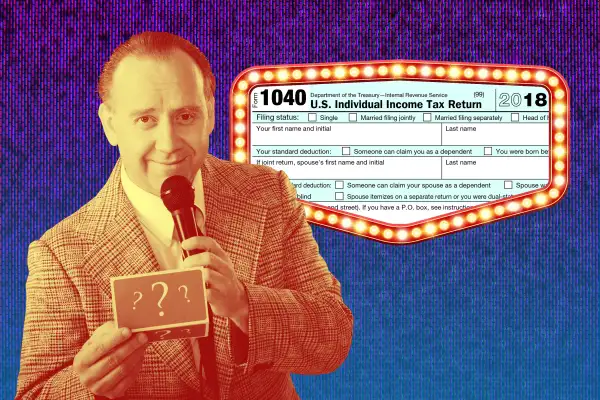Half of Americans Can't Answer These Three Simple Tax Questions. Can You?

Think you're ready for tax season? If you're like most Americans, maybe you should study up.
Last month, online investment company Betterment polled 1,000 U.S. taxpayers to see what they did and didn't know about the tax code. To be sure, most Americans answered some questions correctly. A slim majority correctly confirmed that income tax rates have come down in the past year. But a large majority of taxpayers flubbed other, arguably more important questions.
To be fair, even seasoned filers will notice some differences this year, largely owing to the new rules enacted by the Tax Cuts and Jobs Act. The Republican-backed tax code overhaul, which was signed into law at the end of 2017, made several big changes that went into effect last year.
Knowing these changes inside and out might not be your top priority, but understanding how the new rules impact your bottom line could save you confusion when it's time to file or disappointment when it comes to your tax refund.
How much do you know about filing taxes this year? See how you stack up below.
What is the standard deduction for single tax filers?
Survey question: True or false: The standard deduction for single tax filers is $12,000.
Correct answer: True
Answered correctly: 16%
If a $12,000 standard deduction doesn't sound quite right to you, you're not alone: Four out of five respondents got the wrong answer when asked if this is the amount any single filer can subtract from their taxable income just for filing.
That could be because the standard deduction for single filers has hovered just above or below $6,000 for the past decade. The Tax Cuts and Jobs Act changed that by nearly doubling the standard deduction to $12,000 from $6,350 for single filers and to $24,000 from $12,700 for couples filing jointly.
Can I claim a personal exemption for my 2018 taxes?
Survey question: True or false: Taxpayers can claim a personal exemption.
Correct answer: False
Answered correctly: 33%
No matter how you file, you can always claim the personal exemption, right? Wrong.
The Tax Cuts and Jobs Act did away with the personal exemption for the 2018 tax year, counting on the doubled standard deduction (see above) and an increased child tax credit to make up for the difference. Taxpayers should be aware of this change, since it might impact the math for those with older children or other dependents.
How much in taxes is taken out of my paycheck?
Survey question: Do you know the percentage of your paycheck being withheld for your taxes?
Percent who said yes: 50%
Unlike other questions, you don't need to be tapped into tax politics to get this one right — just your paycheck. Half of all people polled didn't know how much money is being withheld from their pay for taxes.
While money you never see might feel like it doesn't exist, it still plays an important part in your overall financial picture — especially if you're expecting a windfall in the form of a tax refund. If you don't know exactly how much you're withholding, it's difficult to predict how much money you'll see in your refund, or if you'll get one at all, before you file. That could spell bad news for the 41% of respondents who told Betterment they're planning on using part of their refund to pay off debt.